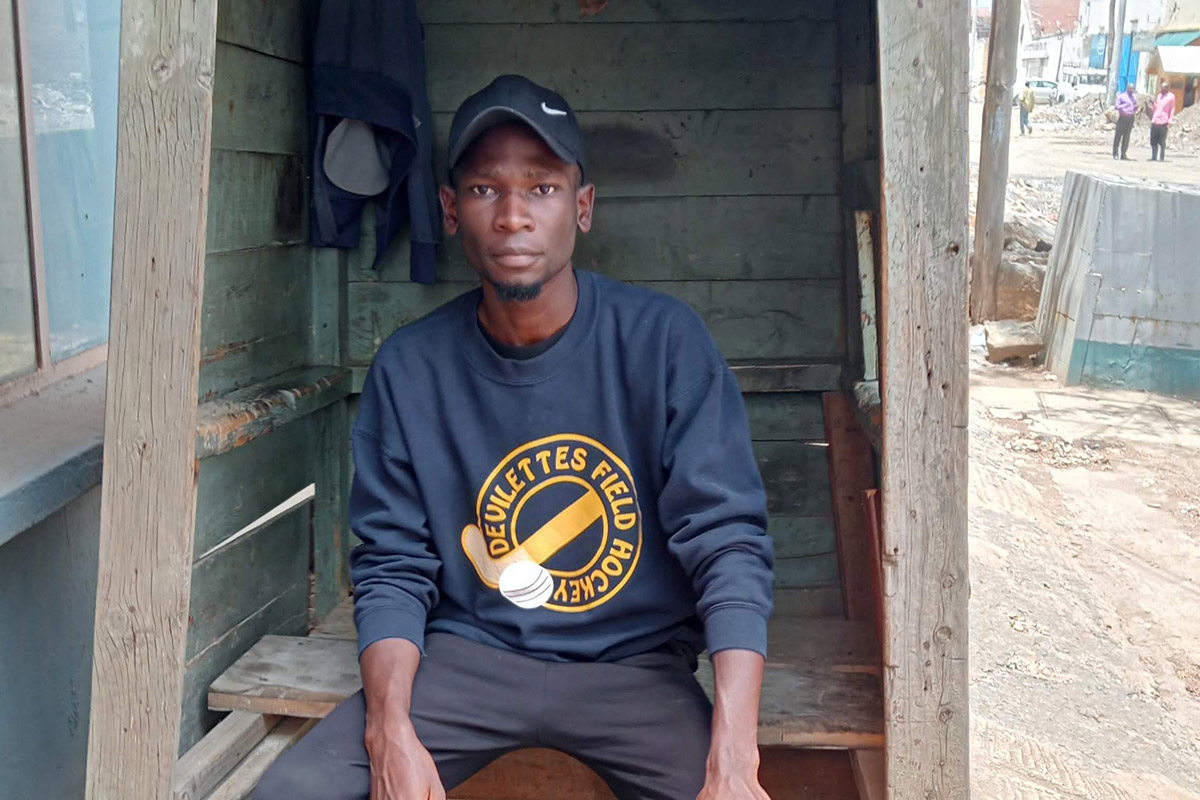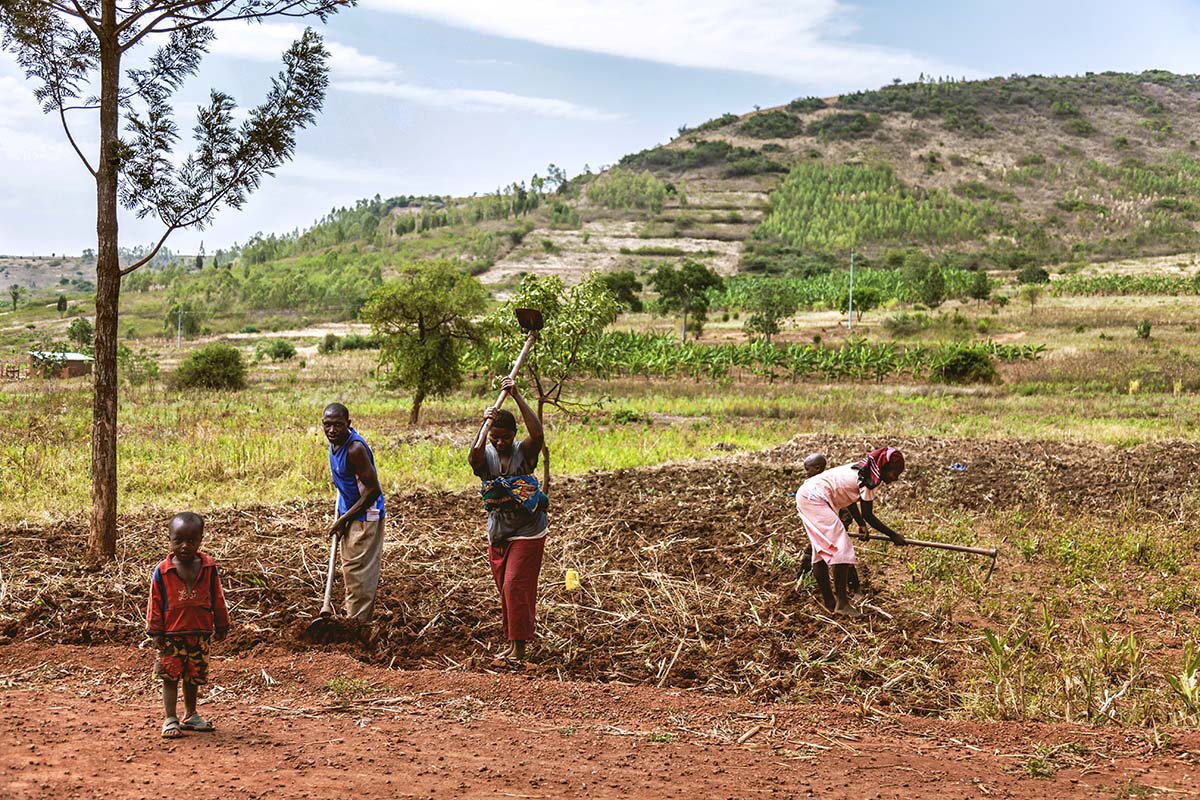The Hidden Crisis: The Exploitation and Abuse of Security Guards in Kenya (+video)
April 23by Evans Ijakaa
The mistreatment of security guards is an issue I never expected to witness firsthand. I once assumed these were just exaggerated stories—complaints from people dissatisfied with their jobs. But after a close observation, I realized the harsh reality security guards endure daily.
Security guards, commonly referred to as “sojas” in Kenya—a sarcastic twist on “soldiers” are the silent protectors of our homes, businesses, and institutions. They are the first line of defence in most public and private spaces, yet they remain among the most underpaid, overworked, and overlooked professionals in Kenya. While the human rights community often focuses on abuses committed by uniformed officers like police and military personnel, the plight of security guards is rarely addressed. Their working conditions, economic struggles, and systemic mistreatment reveal a hidden crisis that deserves our urgent attention.
Working Hard, Earning Peanuts
A significant majority of Kenya’s security guards earn as little as Ksh 15,000 (USD115) per month, an amount that has remained unchanged for the last 25 years, according to industry lobbies. This is despite the fact that private security firms charge clients anywhere between Ksh 40,000 (USD309) to Ksh 100,000 (USD773) per guard. The difference between what security firms charge clients and what guards actually earn is shocking, this is serious wage exploitation in this industry.
A 2024 report by the Private Security Regulatory Authority (PSRA) provides a deeper insight:
- Kenya has over 800,000 private security guards, making the sector one of the largest employers in the country.
- The private security industry has an annual turnover of over Ksh 300 billion.
- Despite these figures, most security guards remain stuck in poverty, with many forced to live in slums due to low wages and unfair working conditions.
The PSRA issued a directive setting the minimum wage for private security guards at Ksh 30,000 (231 USD) per month, upheld by the High Court of Kenya. However, implementation remains a challenge. Many security firms have failed to adjust their pay structures, citing non-payment from clients as an excuse.
Human Rights Violations
Beyond low wages, security guards endure inhumane working conditions. Interviews and reports from the International Code of Conduct Association (ICoCA) reveal that many guards:
- Work for over 12 hours per day without adequate or no rest at all sometimes.
- Lack basic necessities like access to clean water, shelter, or even proper toilet facilities while on duty.
- Are forced to work under extreme weather conditions without protective gear.
One security guard interviewed in Nairobi’s Industrial Area narrated his daily struggles:
“When it rains at night, I have no shelter. The company locks its doors, and I am left outside. I have to find a sack to cover myself.”
I once overheard a security guard having a conversation on payday. She looked visibly distressed as she stepped aside to make a phone call. Pretending to struggle with my bag’s zipper, I stayed close, just near enough to catch her words. In a tired, broken voice, she said: “Hello, Mwalimu (Teacher), let me send you seven thousand for now. Please don’t send my daughter away from school. I will find a way to pay the rest by the end of the term.”
She had no choice but to open up, hoping the teacher would understand. I hope the teacher understood.
“I spend most of my salary on my daughter’s school fees. After deductions, I’m left with only Ksh 2,000 (USD15) to 3,000 (USD23) —barely enough for rent in Kangemi.”
In most cases, if not all, when a company is robbed or burglarized, the security guard is the first to be blamed—guilty until proven innocent. Many have lost their jobs, some have been arrested, not because of evidence, but simply because they were on duty when it happened.
In the Industrial Area of Nairobi, I came across a so-called “security house”—a structure barely fit for human habitation. This rabbit-like shelter is where security guards are expected to rest both during the day and at night.
Delayed and Withheld Salaries
Some guards wait for up to three months without pay. In the worst cases, their wages never come at all. Those who dare to quit risk losing everything. Security firms blame delayed client payments, but in the meantime, guards are left to struggle, unable to afford even the basics of survival.
A case study – Terrence
Terrence, a university student who took up a part-time job as a security guard in Westlands, shared his painful experience.
After three weeks on a weekly contract, Terrence was paid only Ksh1,500 (USD 11). Under the unforgiving January sun and hunger, our boy never took off his sweater—he had to stay on brand as instructed.
“Mind you, I used to borrow money just to get to work, and my employers didn’t even provide lunch. When I finally got paid, every shilling went into settling debts. I walked away with nothing. I was working to raise money for my CPA KASNEB (Kenya Accountants and Secretaries National Examinations Board) exams—but I never saved a cent.”
Legal Reforms: Are They Enough?
The Legal Notice No. PSRA/005/2023, issued by the Private Security Regulatory Authority, aimed to improve security guards’ conditions:
- Minimum wage set at Ksh 30,000 for guards in urban areas and Ksh 27,183 outside Nairobi.
- Employers are required to provide overtime pay, house allowance, and social security deductions.
- The High Court of Kenya dismissed a petition opposing the new wages, meaning security firms must comply.
Despite these reforms, enforcement remains weak. Many security firms ignore the directive, and government oversight has been minimal.
Where Is the Labour Ministry of Kenya and COTU (Central Organization of Trade Unions)?
The Central Organization of Trade Unions (COTU) and the Kenyan Ministry of Labour are expected to protect workers’ rights, but when it comes to security guards, their efforts feel more like empty gestures. Many guards feel abandoned by the very institutions meant to fight for them. It makes me wonder—what exactly does the Ministry of Labour do? And COTU, Kenya’s largest labour federation? Oh, wait. We only see the COTU Secretary-General once a year on Labour Day, parading in a purple shirt at a stadium.
Security firms must be compelled to pay guards fairly. Security guards need a stronger, independent union to fight for their rights. The exploitation of guards must be widely highlighted through media, advocacy, and legal action.
This is not just a labour issue—it is a human rights crisis. Unless urgent reforms are implemented and enforced, our guards will continue to suffer in silence.






